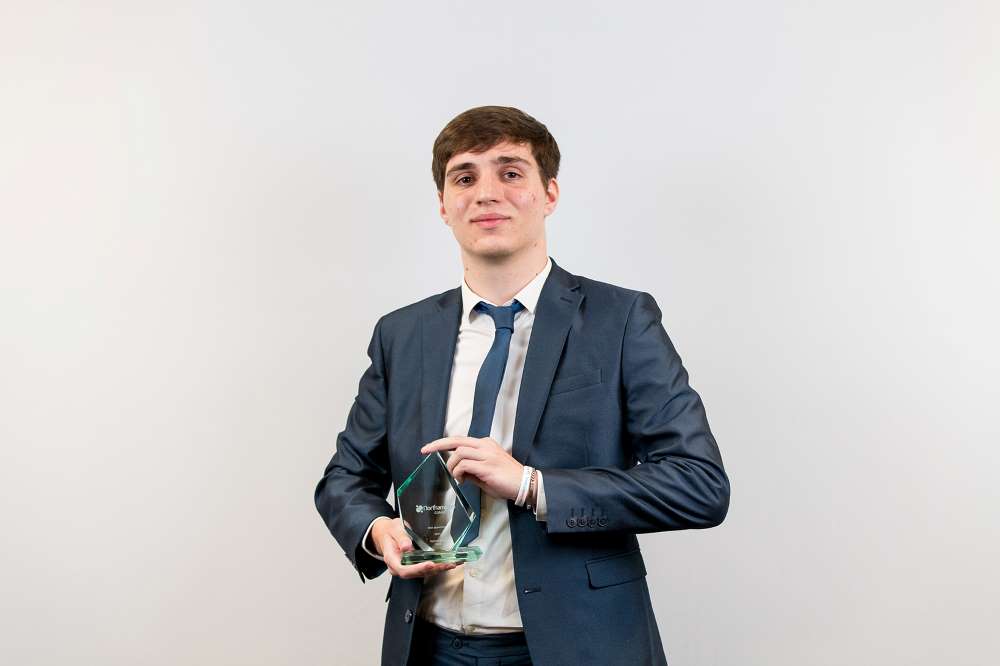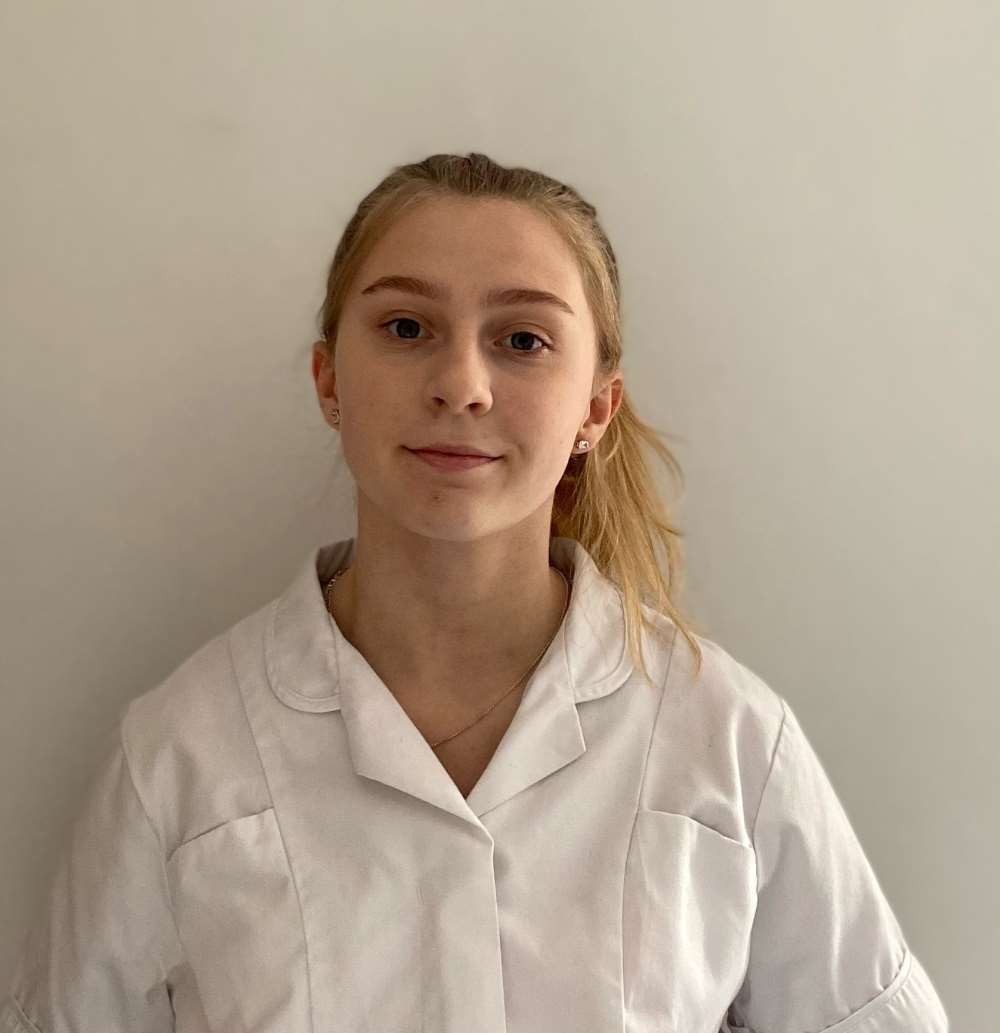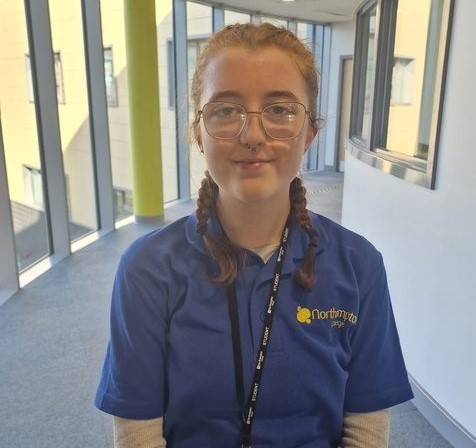This qualification covers all areas of photography examples include; advertising, environmental, extreme sports, photo-journalism, commercial and portraiture to name a few. You will also explore darkroom practices, digital imaging/editing, studio techniques, magazine design & lay-out, film photography, studio set-up and professional practices. You will gain an understanding of the history and context of photography, critical reflection, portfolio development and will develop a range of skills necessary for a career within the photography-related industries.
On completion of this course, you will achieve a Level 3 UAL Extended Diploma in Creative Practice: Art, Design and Communication: Photography
-
What will I study?
First Year: Students will be given in depth practical instruction on all the equipment and processes we have at Northampton College. This will include all formats of camera, 35mm medium format, studio and digital cameras. Students will work with studio lighting in the studio and on location; they will investigate the many styles of photography including advertising, fine art, fashion, photo documentary and landscape. These projects will include professional practice.
The first year will be a mixture of traditional and digital, using computers and software such as Photoshop. Students are required to keep a full and complete set of sketchbooks that include assignment drawings, notes, handouts and ideas.
Students are introduced to Historical and Contextual Studies broadly based around photography and the photographic image. Gallery and exhibition trips during this course will be arranged and we strongly advise students to make the most of these opportunities.
Second Year: The second year offers opportunity for personal and professional development, and working towards a final major project when students work more independently on advanced projects with tutorial input. This is intended to help the student gain either employment or a place in a College or University of their choice at HND or BA level. During the second year, photographers from various backgrounds may visit the college and talk about their work. These may editorial, newspaper and fine art photographers.
At the end of the second year the students independently organise and present a show of work off-site as part of the course expectations. Ultimately, students should leave with a portfolio of work that best reflects their career aspirations.
The units you will study are likely to include:
Core Units: Diploma
- The Creative Process
- Developing Creative Practise
- Responding to a set brief
Core Units: Extended Diploma
- Researching a Specialist Industry Practice
- Specialist Technical Skills Development
- Specialist Creative Outcome
-
Who is this course for?
This course is ideal if you have an interest in photography, and would like to progress to university or related employment/ apprenticeships.
-
How is the course assessed?
Assessment is continual throughout each unit, with progress being monitored through tutorials and continual feedback.
The course has internally assessed projects, that are externally moderated.
On the UAL Level 3 Photography students will take a total of three units to complete the diploma qualification and six for the extended diploma. All work is internally set and assessed and unit 3 and 6 are externally moderated by the exam board.
All units are graded and students are required to achieve a minimum of a pass in each unit to achieve the full qualification grade. Units 1 & 2 and 4 & 5 are awarded at a pass grade only. Unit 3 and 6 provides the overall qualification grade either P (Pass), M (Merit), D (Distinction).
-
Your Study Programme
We will make sure you are working at the right level on your core qualification and are challenged to achieve the highest level of qualification you can.
Work experience will be part of your study programme and complement your college study and prepare you for employment. You will also get involved in activities to help you develop life skills and to build your confidence so you can make progress in your career.
Weekly timetables will include tutorial support which may comprise of full group activities or one to one sessions to discuss individual progress or support needs.
All students will continue to improve their maths and English and if you don't have a grade 4 at GCSE, we will work with you towards achieving that goal (subject to specific entry requirements for particular courses).
-
Knowledge
You will develop a thorough knowledge and understanding of:
- A range of different artists, crafts and designers both from current art practise and in art history and other cultures
-
The creative industries relevant to a specific chosen area of focused interest
- Sustainable practise in the creative industries and how this can be applied to student's own studio practise.
-
Skills
You will have the ability to:
-
Develop specialist skills in a range of art and design materials, techniques and processes relevant to the chosen course of study
-
Develop skills in applying design ideas, problem solving and to be able to apply them to specific design project briefs
- Develop skills in presenting art work in a portfolio of work, both digital and practical to prepare for progression to employment or university.
-
-
Behaviours
What is required?
Respect and Inclusivity: Foster a culture of respect for all individuals, embracing diversity and promoting an inclusive community.
Responsibility: Take ownership of your learning and actions, demonstrating reliability in attendance, participation, and submission of work.
Engagement: Actively participate in lessons and college activities, showing enthusiasm and commitment to your studies.
Collaboration: Work effectively with peers, valuing teamwork and contributing positively to group projects and discussions.
Perseverance: Show resilience in the face of challenges, maintaining a positive attitude and striving for continuous improvement.
Professionalism: Exhibit a professional demeanor, including appropriate communication and behavior, which prepares you for future employment.
-
General info
Students will be expected to purchase some basic equipment relevant to the course. This will be conveyed to them in the form of a kit list, sent via email during the summer before they enrol.
There may be opportunities to go on trips throughout the year, the cost of these will be discussed with students ahead of time.
-
Progression and Career Opportunities
After successful completion of this course you may consider applying to University or seeking employment.
-
Entry Requirements for new students
4 GCSEs at Grade 4 including English & a portfolio showing your skills & particular interest. This can include GCSE art/photographic work & personal work produced at home. The level of course you enrol on will be based on the quality of your artwork.
-
Admissions Process
We recommend that you attend one of our exciting open events so that you can look around the department, the college and meet the tutors. You are welcome to do this before or after you apply. These events have proved very successful in ensuring students and their families see the best of what the college has to offer such as our inspirational teaching areas, teachers, library facilities and places to eat.
Once you have applied our experienced Enrolment Team will consider your application carefully and will let you know, by email, if the College would like to make you a conditional offer based on you meeting the specified entry requirements. If your predicted grades or career aims suggest that an alternative subject area or course level would be more appropriate for you at this stage, we will contact you either by telephone, email or text. If you have told us that you have some additional support needs we will contact you to find out more so that we can help you.




